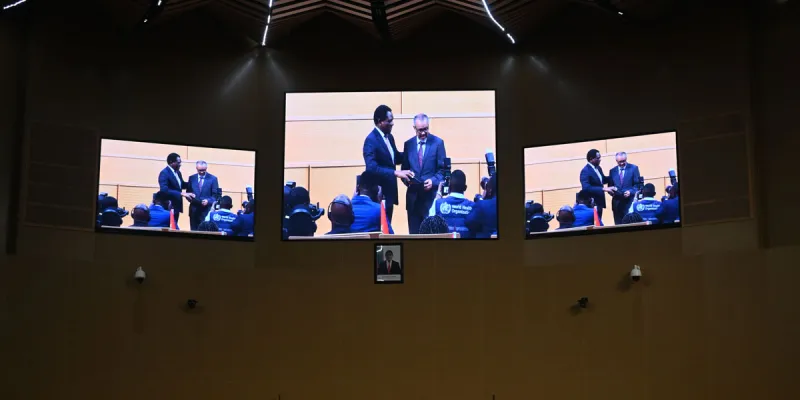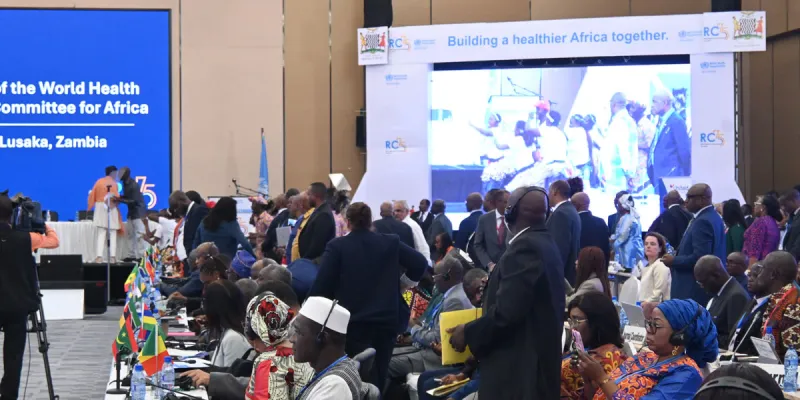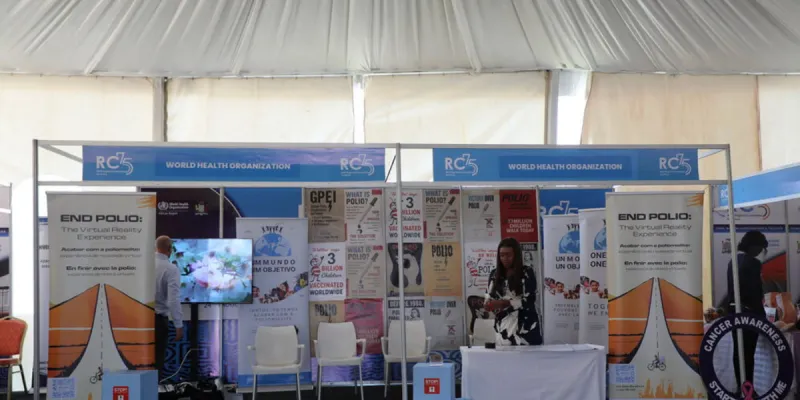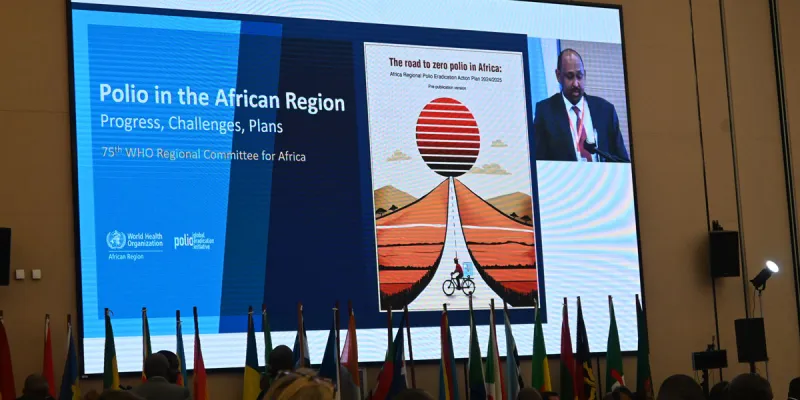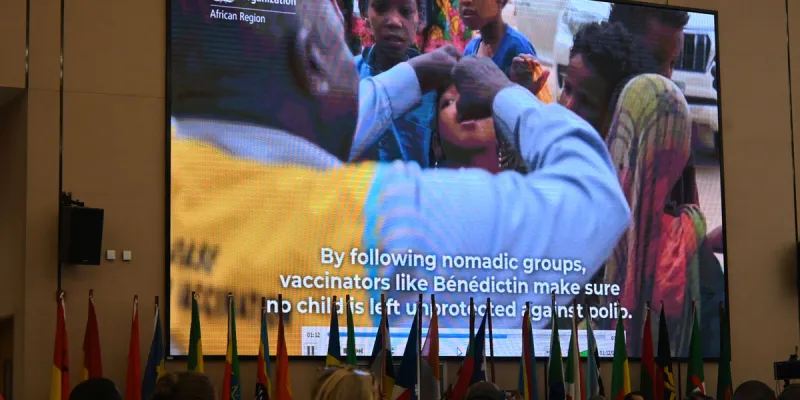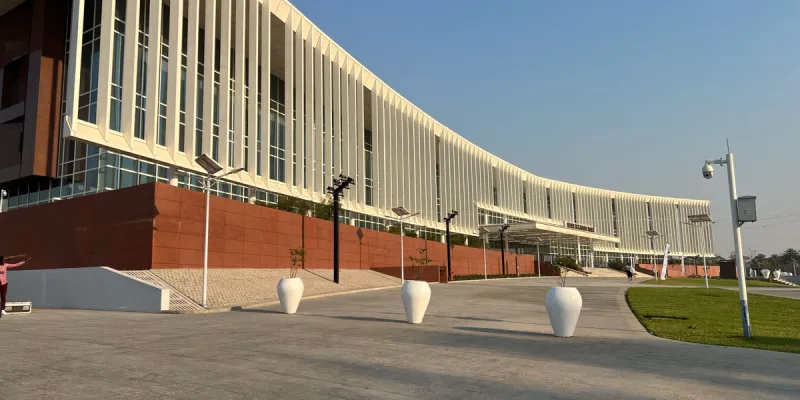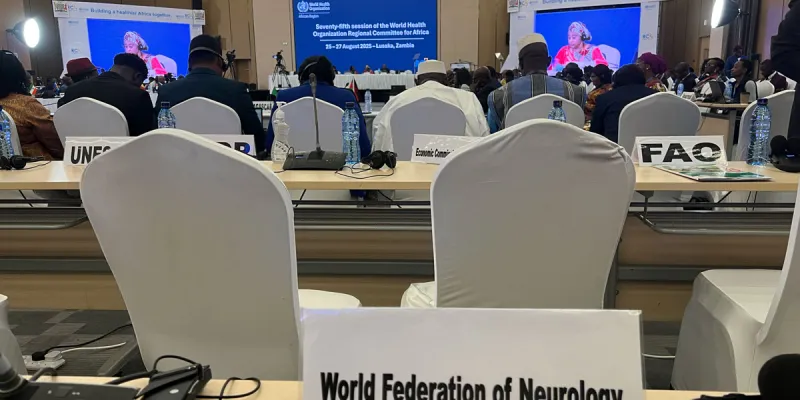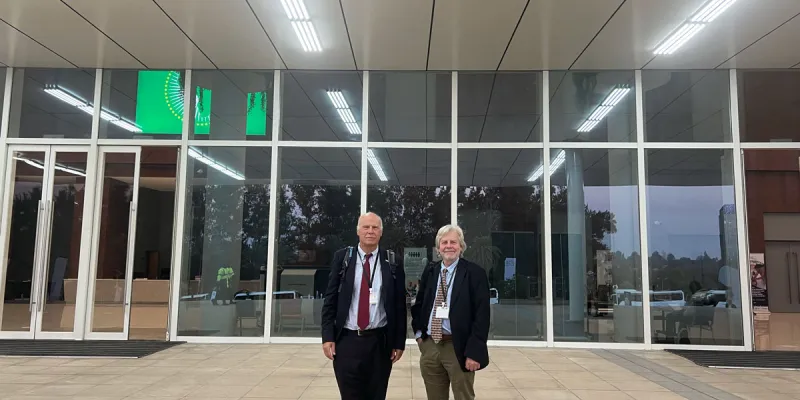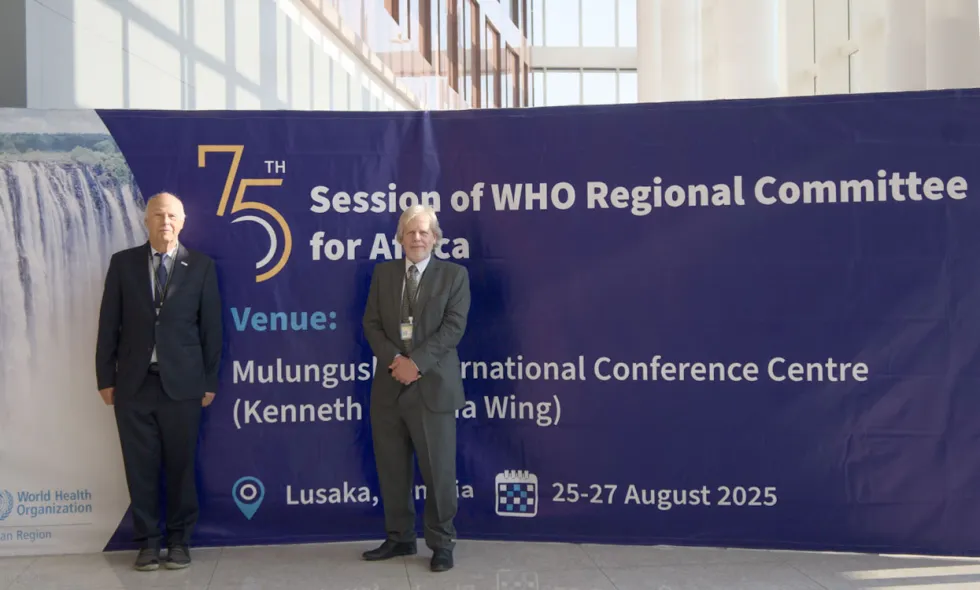
The World Federation of Neurology (WFN) participated in the 75th Session of the WHO Regional Committee for Africa (RC75) in Lusaka, Zambia. Health leaders reviewed strategies to strengthen health systems, with a focus on rehabilitation, infectious diseases and polio eradication. The session opened with a ceremony in which WHO Director-General Dr. Tedros Adhanom Ghebreyesus received the medal of Officer of the Order of the Eagle of Zambia from President Hakainde Hichilema.
WFN President Prof. Dr. Wolfgang Grisold and African Academy of Neurology (AFAN) President Prof. Lawrence Tucker attended the meeting, where Prof. Grisold contributed an intervention ⧉ highlighting the importance of neurological care, education, and public awareness, and addressing the pressing challenges that neurology faces in Africa and globally.
 |
WBD Poster at entrance to Stroke unit of the University Teaching HospitalClick image to enlarge. |
During their visit to Lusaka, Professors Grisold and Tucker took the opportunity to visit Zambia’s largest hospital, University Teaching Hospital (UTH), where a World Brain Day 2024 poster on brain health and prevention was prominently displayed at the entrance of the Stroke unit, reflecting the hospital's support of this years World Brain Day Brain Health for All Ages campaign and the growing visibility of neurology in African health systems. The latest issue of World Neurology features more on these efforts. The article “Transforming Education in Zambia” by Dr Ndonji Chiwaya, a resident in internal medicine at UTH, highlights innovative approaches to training the next generation of neurologists and health professionals. Another article, “Epilepsy in Primary Care in Sub-Saharan Africa", Prof. Massimo Leone, International Affairs for the Global Neurology Program at The Foundation of the Carlo Besta Neurologic Institute, explores practical solutions for managing one of the region’s most common neurological conditions within local health systems. These initiatives connect directly to the WFN’s ongoing activities with WHO and the International Global Action Plan on epilepsy and neurological disorders (IGAP), reinforcing the importance of collaborative efforts to improve brain health worldwide.
The close collaboration extends to the upcoming WCN 2025 ⧉ in Seoul, where Dr. Dévora Kestel, WHO Director, Noncommunicable Diseases and Mental Health (a.i.), will present on “Neurology: Brain Health and Mental Health” during the President’s Symposium. Also attending from WHO will be Dr. Tarun Dua, who leads the Brain Health Unit in the Department of Mental Health and Substance Use.
Other WCN plenaries ⧉ will explore cutting-edge developments in immune therapies, stroke management, brain health, movement disorders, migraine research, cellular aging, and neurodegenerative diseases. The congress aims to foster global collaboration and advance the field of neurology.
Through active participation in WHO forums and preparations for WCN 2025, the WFN continues its mission to strengthen neurology globally and promote better brain health for all. WHO’s engagement at the Congress highlights the continued collaboration between international health institutions and the neurology community. WCN 2025 will feature high-level plenary sessions on critical issues for the future of neurology, including brain health, new treatments, and ways to expand access to care.




